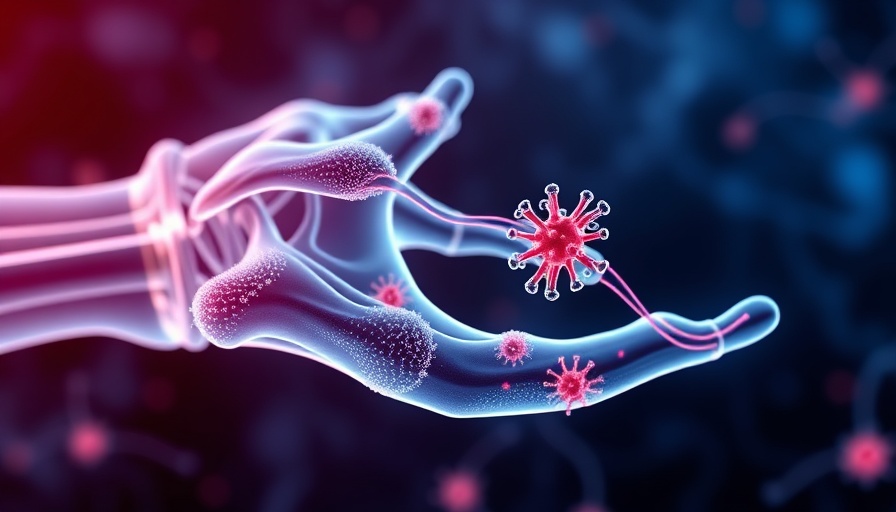
Understanding the Intricacies of Osteoimmunology and Bone Health
Bone diseases impact millions globally, leading to significant physical impairment and reduced quality of life. A recent surge in research has illuminated the complex interactions between the bone and immune systems, collectively termed 'osteoimmunology.' This emerging field recognizes that the immune system plays a pivotal role in maintaining bone homeostasis through a delicate balance of various cell types.
Crucial Role of Dendritic Cells in Bone Health
Dendritic cells (DCs) serve as critical mediators in orchestrating immune responses. Research highlights that these antigen-presenting cells not only contribute to the body's defense mechanisms but also participate actively in bone repair and regeneration processes. The relationship between DCs and immune cells—like T and B cells—and skeletal cells is essential for understanding bone homeostasis, particularly in the context of bone-related diseases such as rheumatoid arthritis (RA) and periodontitis.
The Immune System’s Influence on Bone Diseases
The interplay between the immune system and bone function is intricate, with numerous cytokines influencing the activities of both osteoclasts (bone-resorbing cells) and osteoblasts (bone-forming cells). For instance, certain immune cells, such as regulatory T cells, exhibit a protective role by inhibiting osteoclastogenesis through the secretion of anti-inflammatory cytokines. Conversely, Th17 cells have been identified as contributors to osteoclastogenic activity, emphasizing the dual role of immune cells in either supporting or harming bone health.
Exploring Innovative Treatments Targeting Dendritic Cells
Innovative strategies are being developed to target DCs effectively to promote bone repair and regeneration. These biomaterials aim to harness the active role of DCs in the immunological context of bone diseases, potentially offering ground-breaking solutions for significant bone injuries and defects. Understanding how to manipulate dendritic cells can open new avenues for treatments that enhance bone healing while managing autoimmune responses.
Future Predictions: The Path Ahead for Osteoimmunology
As research progresses, the potential for osteoimmunology to unlock new therapeutic avenues is vast. The increasing understanding of the molecular mechanisms underpinning the interactions between immune cells and skeletal cells suggests that treatments could be tailored more precisely. For example, therapies that target specific immune pathways may mitigate inflammatory bone diseases while promoting natural healing processes.
Conclusion: Embracing the Osteoimmunology Perspective
The growing field of osteoimmunology underscores the necessity of viewing bone health through a comprehensive lens that incorporates both the skeletal and immune systems. By deepening our understanding of the role of dendritic cells in this interplay, researchers can develop more refined strategies for preventing and treating bone-related diseases. Such advancements could significantly enhance the quality of life for individuals suffering from debilitating bone conditions.
 Add Row
Add Row  Add
Add 




Write A Comment